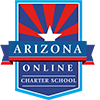If you’re reading this, then you already know that parents today have plenty to do.
Raising kids is a 24/7 job, so adding one more thing to that already packed schedule is probably not an appealing idea, but did you know that studies show that every parent — even parents of kindergartners — should be preparing their elementary school student for college and a career?
Parents may look back on their own childhood and think of carefree days, playing outside, watching television, and sleeping late on weekends; sadly, that was then, and this is now. In today’s world, it’s educational experts suggest that it’s never too early for children to begin formulating college and career plans.
According to the Fordham Institute, only about a third of all students get to the “college and career ready” level by the time they turn eighteen. The school district of McKeesport, Pennsylvania, just south of Pittsburgh, has career focused lessons for grades k-5 as part of their curriculum.
If it seems cruel to heap even more anxiety and stress upon children who already have full schedules, many parents and educators agree. Besides a full load of homework, many young students also have sports, music, or language learning to fill most of their non-school time. Expecting elementary-school students to also analyze their college or career options may seem like it’s asking too much.
An article in Forbes states that the reason for this early-childhood emphasis on college and career is this: “Only 9% of students from low-income families earn a bachelor’s degree – an increase of just three percentage points since 1970. During the same time period, completion rates for affluent students skyrocketed, from 40% to 77%. Sadly, the college completion gap is widening.”
The National Parent-Teacher Association (PTA) provides the following worrisome statistics:
- In 2016, only 39% of ACT-tested graduates met three or more of the four ACT College Readiness Benchmarks in English, math, reading and science. One out of three students—34%—did not meet any of the benchmarks, indicating they are ill-prepared in all four core subject areas.
- Every year in the United States, numerous college students discover that, despite being fully eligible to attend college, they are not ready for postsecondary studies. Millions of dollars are spent on remediation course work—classes that are not credit bearing but cost the same.
- Businesses across the country depend on a highly qualified workforce prepared for jobs in the 21st century. Today’s workplace requires employees to be able to think on their feet, make decisions and solve problems.
To remedy the situation, the National PTA says that their role is to “advocate as a powerful voice for all children and a relevant resource for families and communities—providing resources to help parents and families support and assist with their child’s education including readiness for college and career.”
The U.S. Department of Education also claims to be there to help, and says, “Student achievement in America has had a history of decline in literacy and math, among other indicators. We can and must do better. This focus on academic excellence is urgent for our youngest learners, too. Research shows students who do not read on grade level by third grade ore four times more likely to drop out of high school.”
What can you, as a parent, do to help your child begin making their college and career plans and to act as a partner with your child’s school, PTA and Department of Education? There are many approaches to helping to direct children to the college degree or career that’s right for them, from making young children aware of the many career options available to them, to taking your student to visit college campuses.
It’s also important that children develop the skills that will make it easier for them to be ready to make good choices in determining their future. While schools focus on teaching and improving a student’s skills in subjects like math, science, or reading, parents can play a crucial role by teaching interpersonal skills a student will need. To that end, Edutopia provides several ways that parents can help young children in preparing for college or a career.
Children may not realize it, but they begin making life choices at an early age and parents are in a better position than anyone to help ensure the choices they make are the right ones. Helping a child to find their passion — whether it’s being a fireman, a biologist, a dentist, a teacher, a medical researcher, or an electrician — will give them the opportunity to spend their lives doing something they love, and that may be one of the greatest gifts a parent can give.



